Ashwagandha is an evergreen herb that has been cultivated for centuries and grows mainly in Asia and Africa. Although it is used in the treatment of many diseases, it is especially used for stress.
Ashwagandha, or Withania somnifera, is an herb used in antiquated Ayurvedic medicine. It is used to treat anxiety, insomnia, swelling during pregnancy, and any diseases.
Recent ayurvedic survey has confirmed that Ashwagandha treatment, which also includes the benefits of improving skin health and other diseases like blemishes or improving antioxidant properties.
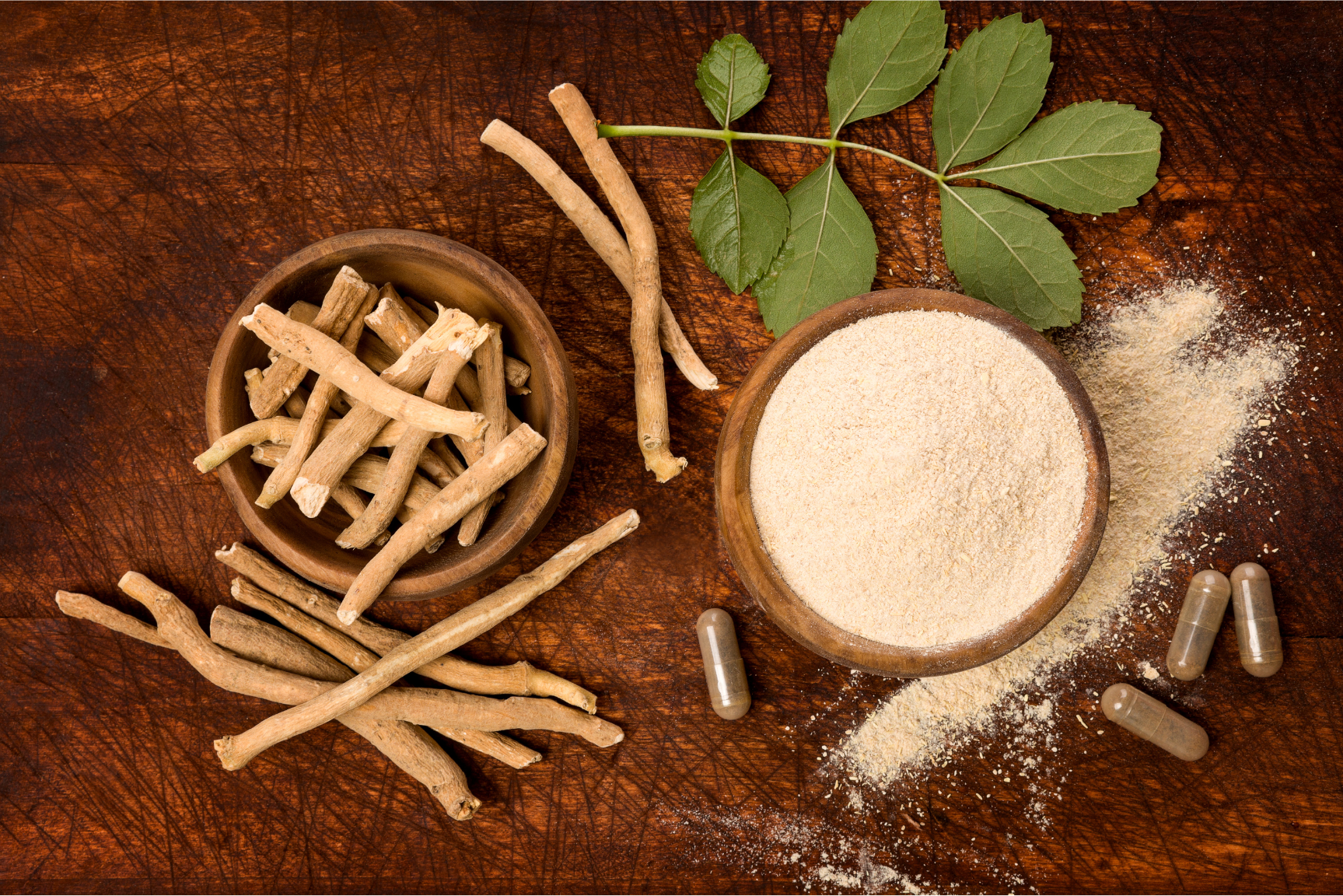
Its Sanskrit name is Ashwagandha because it is believed that the roots of this plant smell like a wet horse, so it is known as Ashwa, i.e. (horse) Gandha, i.e. (smell) Ashwagandha. Ashwagandha is sometimes known as Indian ginseng (Plant) or winter cherry, although it is not related to the ginseng family.
Ashwagandha is becoming famous for its wide variety of benefits and the best results it gives. Many people use Ashwagandha to help improve energy levels and promote sleep.
Does Ashwagandha Make You Sleepy?
Ashwagandha, also known as Withania somnifera, is a powerful herb used in Ayurvedic medicine for centuries. It is renowned for its ability to reduce stress, improve concentration, and boost energy levels.
Ashwagandha is available in various forms, including ashwagandha powder, which is commonly used in daily supplements for stress relief and improved sleep quality.
The herb contains a range of beneficial compounds, including withanolides, alkaloids, and fatty acids, which contribute to its therapeutic effects. Studies have shown that ashwagandha can help lower cortisol levels, enhance brain function, and even combat symptoms of anxiety and depression.
What is Ashwagandha?
Ashwagandha, also known as “Indian ginseng,” is an evergreen shrub native to Asia and Africa. This remarkable plant has been a cornerstone of traditional Ayurvedic medicine for thousands of years, revered for its ability to ease pain and inflammation, boost nutrition, and treat insomnia, among other conditions. As an adaptogen, ashwagandha helps the body manage stress more effectively, promoting overall well-being.
The name “ashwagandha” is derived from the Sanskrit words “ashva,” meaning horse, and “gandha,” meaning smell, referring to the distinct odor of the plant’s roots, which is said to resemble that of a wet horse. This unique characteristic is just one of the many reasons why ashwagandha is also known as winter cherry or Indian ginseng, although it is not related to the ginseng family. Its scientific name, Withania somnifera, reflects its sleep-inducing properties, making it a popular choice in herbal medicine and alternative medicine practices.
The following are some of the ashwagandha supplements that show how they improve sleep:
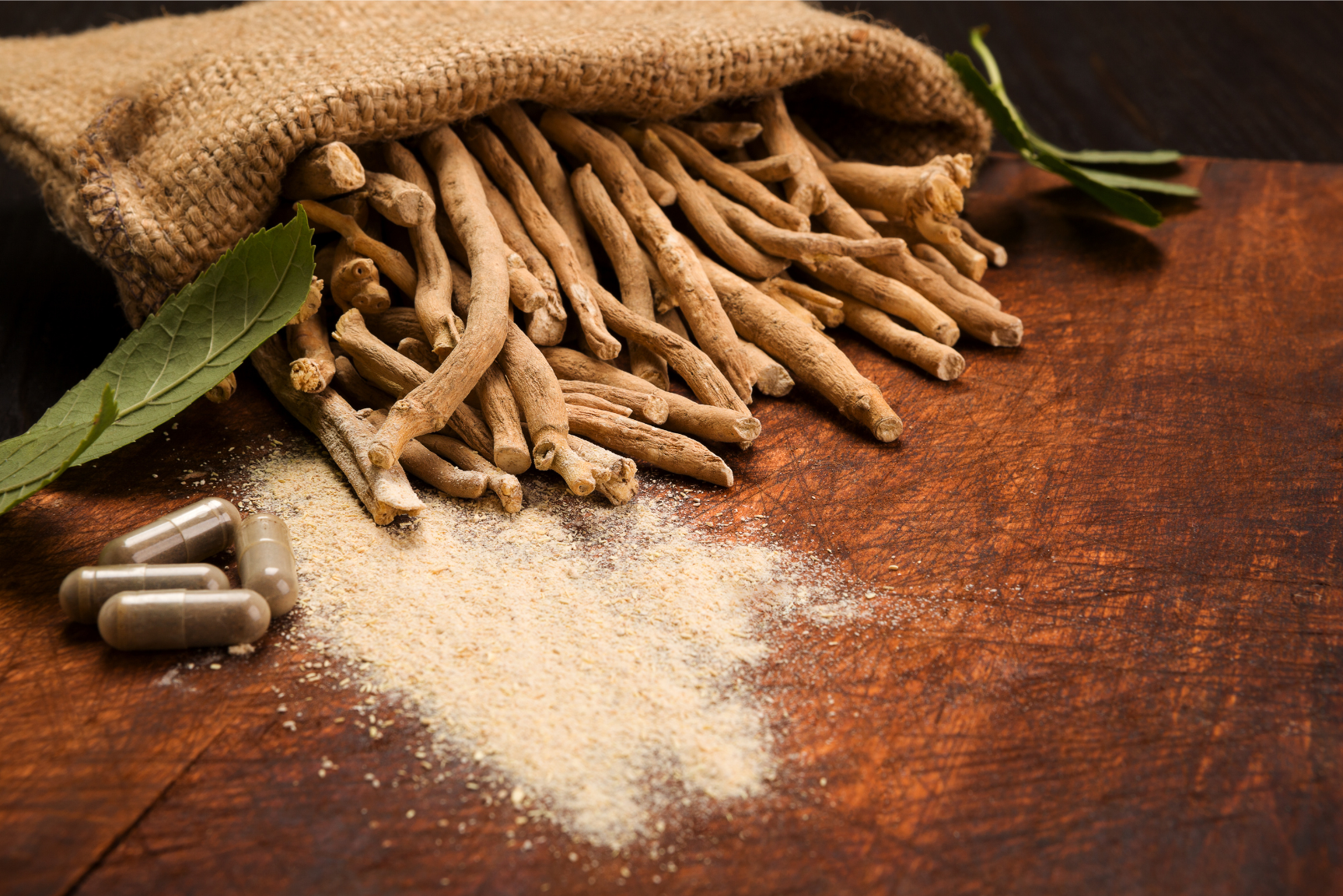
Falling asleep in less time: Its use has improved in quickly falling asleep.
Increased sleep efficiency: Based on user reviews, it has been shown to improve sleep quality and improve longevity
Comfort and improvement in sleep timing: Staying asleep without discomfort and increasing sleep time
Reduced wakefulness following sleep: Participants tended to remain awake for shorter amounts of time after initially falling asleep.
The participants reported feeling more awake when they woke up the following day after consuming it.
Withanolides are the main active ingredients of Ashwagandha, which are believed to have stress-reducing properties and many other incredible benefits. The leading cause of stress is poor sleep and excessive daytime sleepiness. If Ashwagandha is taken before bedtime, it reduces stress and gives a good sleep experience.
Is Ashwagandha good for Stress and Anxiety?
The results of numerous reliable clinical trials have consistently shown that Ashwagandha extract is a trusted remedy for reducing chronic stress and anxiety. A 2021 systematic review unearthed seven articles investigating the use of Ashwagandha to alleviate chronic stress and anxiety, further solidifying its effectiveness.
These trials, involving a total of 490 adults primarily from India, who were either suffering from high stress and anxiety or diagnosed with symptoms of panic attacks, yielded promising results. The participants were randomized to take either Ashwagandha or a placebo for 7 to 8 weeks. Ashwagandha, when taken in the recommended dosages, showed significant potential in reducing stress and anxiety.
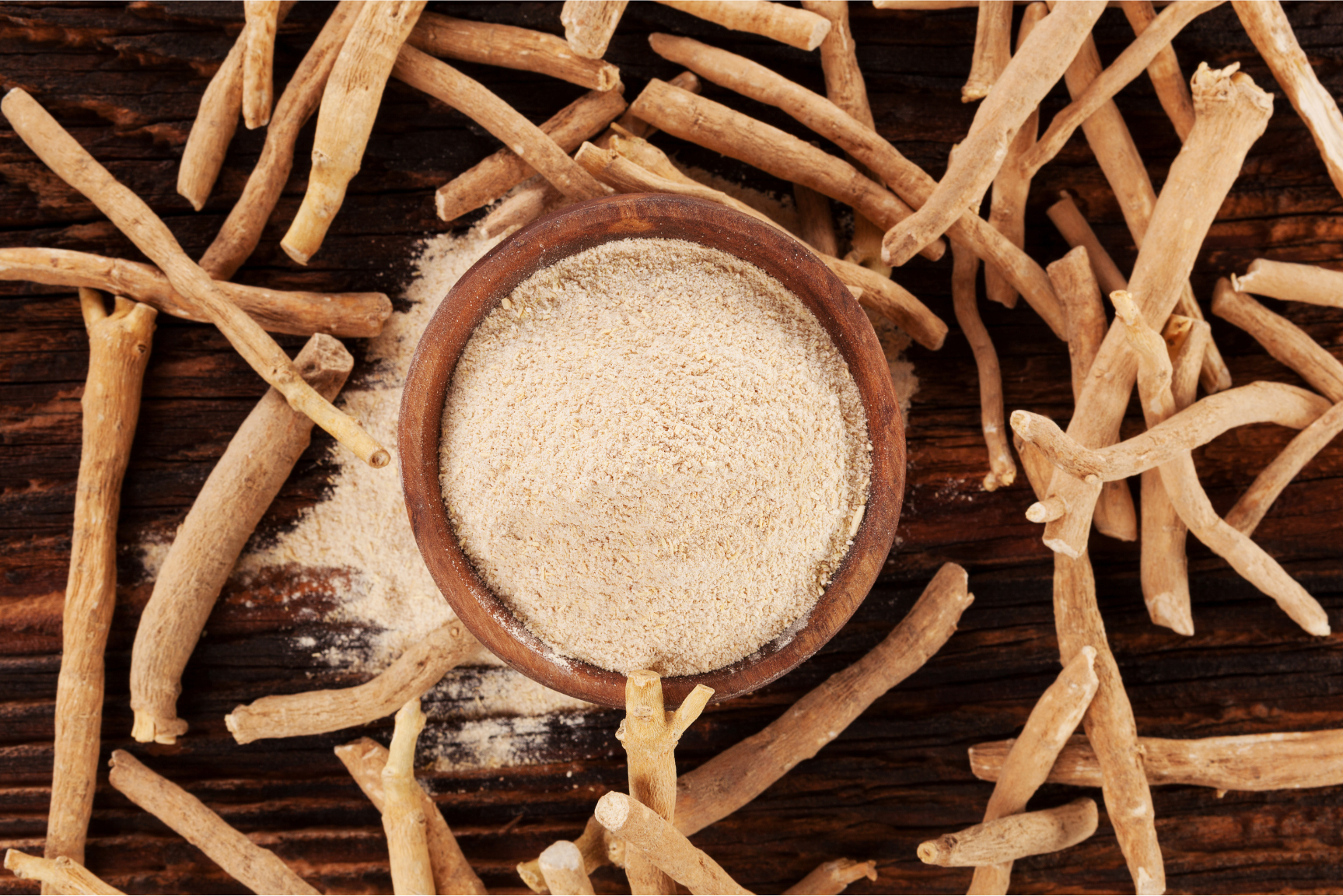
A placebo controlled clinical study confirmed the efficacy of Ashwagandha in reducing stress and anxiety levels. When compared to a placebo, ashwagandha was found to considerably lower stress and anxiety levels overall. It lessened weariness and sleeplessness. Ashwagandha is also thought to lower levels of the stress hormone cortisol in the blood. Several studies have found that Ashwagandha doses of 400 to 500 mg/day produce faster and greater benefits than lower doses.
According to the findings of the majority of research released following this 2022 review, ashwagandha has been demonstrated to have positive impacts on stress perception. In a Florida clinical experiment, for example, 70 men and women between the ages of 34 and 35 reported feeling anxious in their lives.
For 30 to 35 days, participants consumed 250 mg or 400 mg of ashwagandha root and leaf extract (Nugandha) or a placebo in the form of capsules.
At two health centers in India, 150 healthy young men and women aged 18 to 60 years who self-reported depression were randomly assigned to either a placebo or a sustained-release ashwagandha root extract (Prolanza) for 80–90 days.
Does Ashwagandha Root Extract Effect Energy Levels?
Taking an ashwagandha supplement can have positive effects on your body. It is a well-analyzed adaptogen, a completely herbal substance that has balanced effects on many physiological processes in the body. Research confirms that it may have the ability to improve or enhance athletic performance, and increase energy levels. It may also help increase your mental clarity.
Meanwhile, another research found that people who took ashwagandha had increased oxygen consumption as a result. As recently as 2022, a review found that people who took ashwagandha reported improved physical fitness, a sense of calmness, and better sleep quality.
If you are unable to go to the gym or do any other exercise then taking ashwagandha can also help people to increase muscle mass or fitness, which can have a permanent impact on stamina and energy levels.
Ashwagandha's Association with Fat Reduction and Body Weight Management
Promotes growth of weak muscles
While weight loss is common, what is more important is the proper preservation or growth of lean muscle mass. Ashwagandha can aid in body weight management by reducing psychological stressors that lead to overeating. Taking ashwagandha in the correct dosage has been shown to increase muscle energy and size by stimulating protein synthesis.
Controlling Emotional Eating and Craving.
It can be hard to control your appetite and give up your favorite foods in order to lose weight. Proper use of dietary supplements like Ashwagandha can help reduce appetite, which helps in reducing hunger and thus reduces the intake of extra calories.
Ashwagandha users claim that it helps in emotional well-being by reducing stress and anxiety, which is one of its biggest benefits.
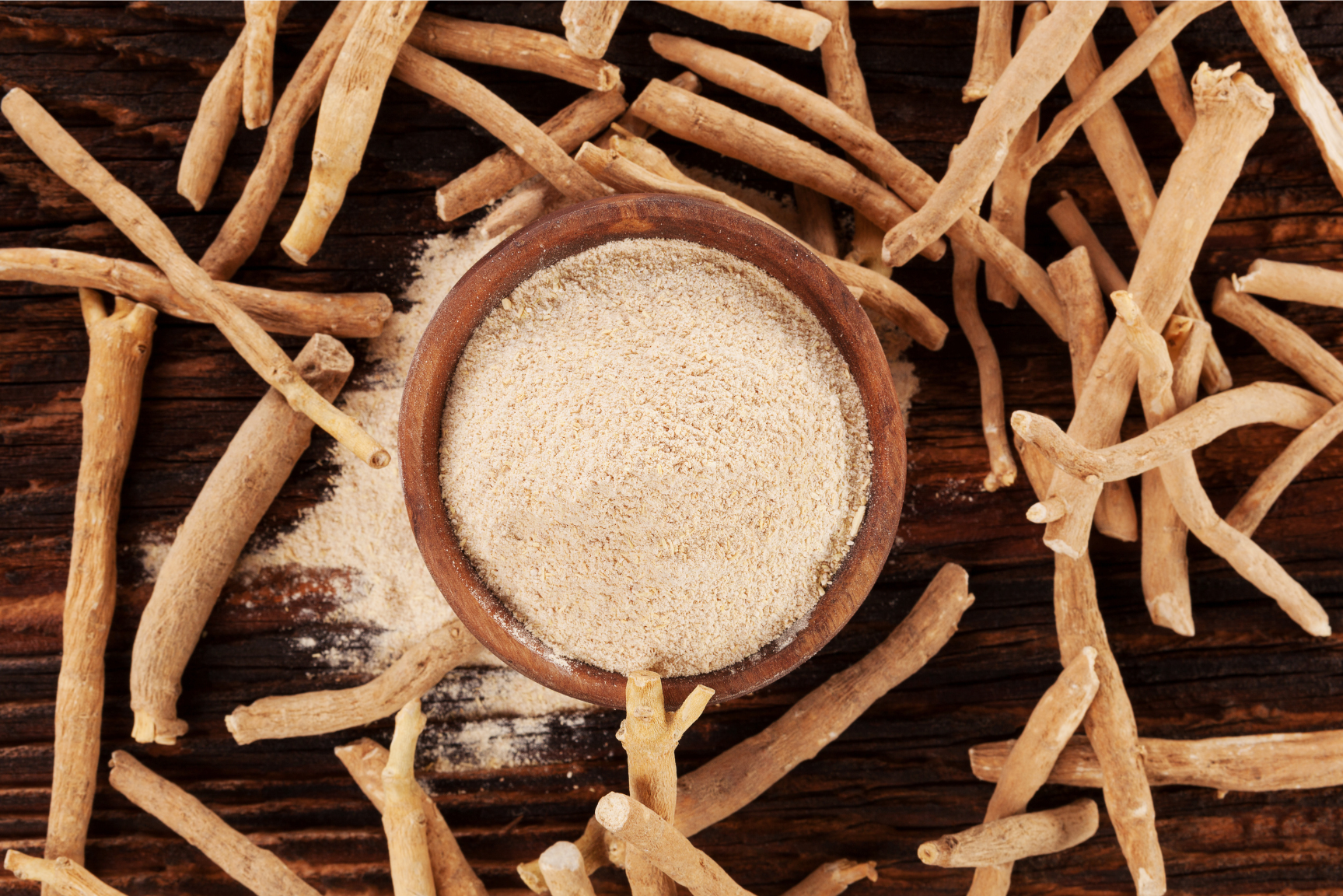
Which kinds of ashwagandha are available for use in improving sleep quality?
Ashwagandha is found in a variety of forms, including:
-
capsules or tablets
-
powder
-
liquid extract
-
Tea (frequently in combination with other soothing herbs)
Double blind placebo controlled studies have shown the efficacy of these forms in improving sleep quality.
The liquid form, or tea, can be a better option if you want immediate effects. Tablets or capsules might be a preferable option for controlled and regular dosage. Remember that most studies highlight ashwagandha’s sleep-enhancing benefits over a long period of time, often spanning several weeks.
While consuming the herb is a great way to experience an immediate boost of energy, taking it just before bedtime may have less of a sleep-disrupting effect.
What is the recommended dosage of ashwagandha for sleep?
The appropriate and correct dosage of ashwagandha for sleep is based on your daily routine and individual response. The form of ashwagandha you take (powder, tea, tablet, liquid) may vary depending on the concentration of active compounds in the product.
As a general suggestion:
Powder: The usual dosage is 1-2 grams of ashwagandha root powder daily, taken in 2 doses.
Capsules or tablets: The standard dosage is often 220–590 milligrams (mg) daily, taken divided into 2 doses.
Liquid extract: A typical dose is about 1-2 millilitres (mL) of extract, taken two to three times a day. This equates to about 600-1200 mg of ashwagandha daily.
Tea: If you are drinking 1-2 cups of Ashwagandha tea daily then you are following the instructions.
Concentrations may vary slightly from this, so be sure to follow the instructions.
Regardless of the form in which you take Ashwagandha, it is recommended that you consult with a qualified health care professional who can help you determine the right dosage of Ashwagandha for you.
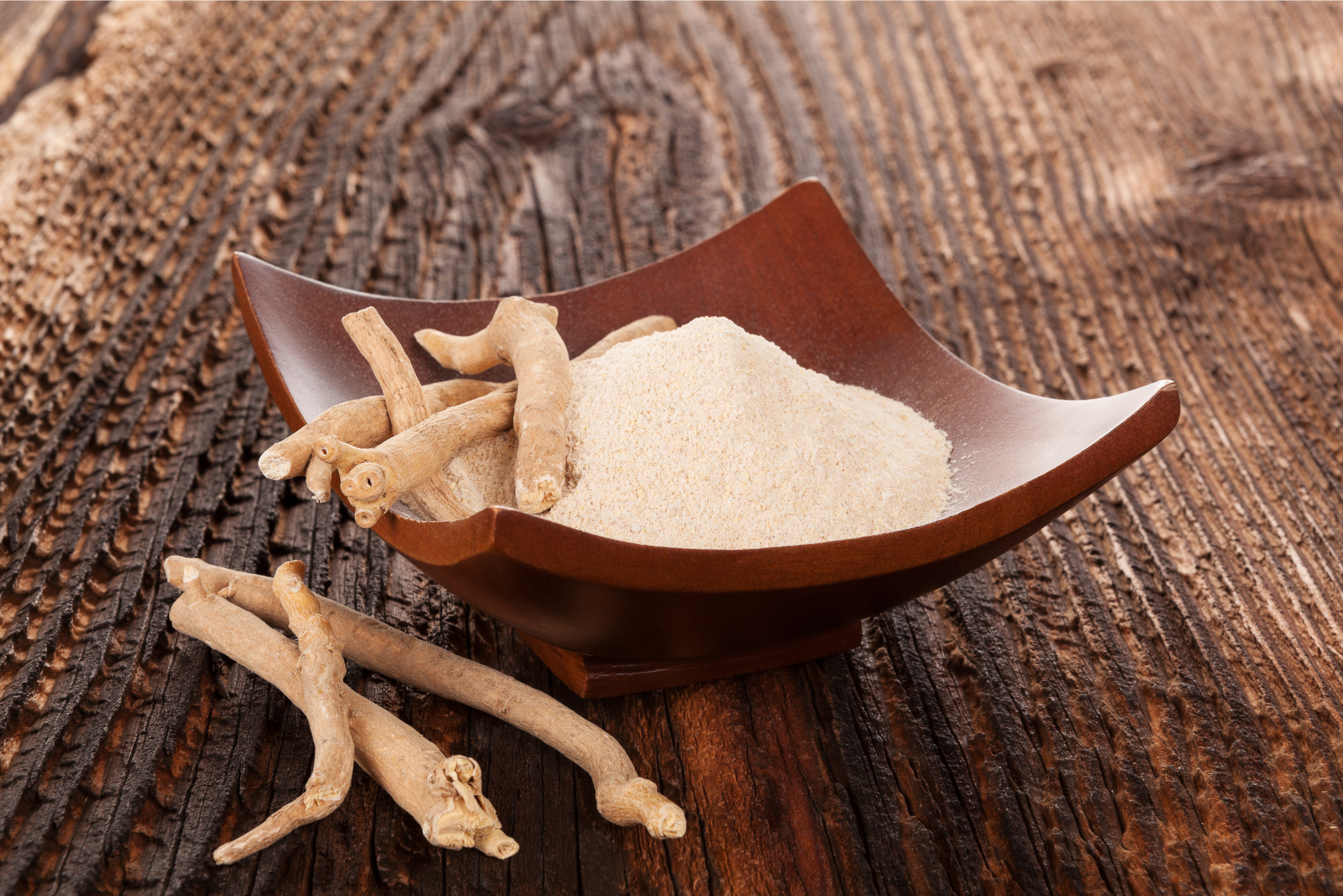
A review of five different studies
Trusted Source: National Library of Medicine, Center for Biotechnology Information, By making genomic and biomedical data accessible, the National Center for Biotechnology Informatics promotes both science and health.
View Source: Ashwagandha supplements have been shown to improve sleep quality in individuals with and without insomnia. Randomized double blind placebo studies have shown the effectiveness of Ashwagandha in improving sleep quality.
Which is better for sleep, ashwagandha or melatonin?
Ashwagandha's adaptogenic nature may gently improve sleep quality without causing any side effects, although users suggest taking it very close to bedtime may also help reduce mental stress and provide a boost of energy.
Taking melatonin as a supplement after dinner and before bed may help you sleep better. Because melatonin is directly linked to quality sleep and your circadian rhythm, taking supplemental melatonin in the right way and amount can affect how quickly you fall asleep and how restful you are at night.
On the other hand, if you are stressed and it is interfering with your sleep, using ashwagandha in your daily routine can help relieve the underlying problem.
In practice, both can be used together under the guidance of a certified medical practitioner, both are capable of addressing the problem by looking at it from different perspectives.
How Ashwagandha Works for Sleep
Ashwagandha may help improve sleep quality by addressing several underlying factors that contribute to poor sleep. One of the primary ways it does this is by reducing stress and anxiety levels, which are common culprits of sleep disturbances. The herb contains various phytochemicals, including withanolides and alkaloids, which have been shown to reduce inflammation and oxidative stress, both of which can negatively impact sleep quality.
Additionally, ashwagandha helps regulate the body’s cortisol levels. Cortisol, often referred to as the stress hormone, can interfere with sleep when levels are too high. By promoting a balanced cortisol response, ashwagandha makes it easier to fall asleep and stay asleep. Furthermore, the herb’s adaptogenic properties support the body’s circadian rhythms, ensuring a more natural and restful sleep cycle. This multifaceted approach to improving sleep quality makes ashwagandha a valuable tool in the realm of complementary and integrative health.
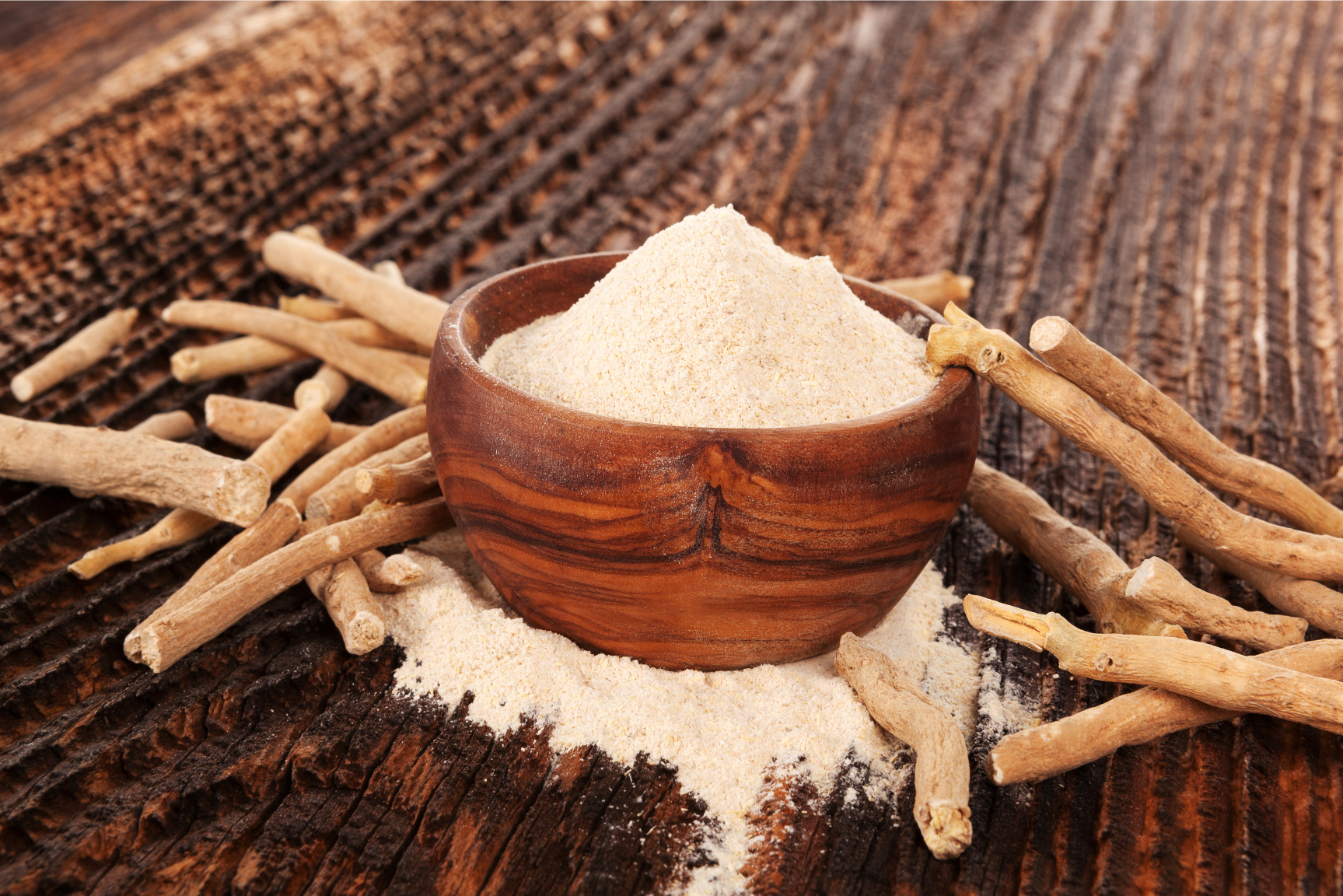
Using Ashwagandha for Better Sleep
Ashwagandha can be utilized in various forms to promote better sleep, including powder, capsules, tablets, and gummies. A daily dose of 300 to 600 mg of ashwagandha root extract is provisionally recommended for the treatment of generalized anxiety disorder, which can also help improve sleep quality. This standardized ashwagandha root extract can be taken at different times of the day, but it is often recommended to take it before bedtime to maximize its relaxation and sleep-enhancing benefits.
When considering ashwagandha supplements, it is essential to consult with a healthcare professional, especially if you are taking any medications or have underlying health conditions. This is particularly important for individuals on thyroid hormone medications or those with concerns about ashwagandha-induced liver injury. By working with a qualified healthcare provider, you can determine the appropriate dosage and form of ashwagandha that best suits your needs, ensuring a safe and effective approach to improving sleep quality through this powerful herbal medicine.
What are the Side Effects of Ashwagandha?
Most research shows that ashwagandha is safe if taken in the short term and its side effects are minimal. Some users report that ashwagandha is well-tolerated for three to four months and even then, it causes only mild side effects, such as diarrhoea, nausea, upset stomach, and drowsiness.
However, there is no confirmation anywhere that using this supplement for a long time or for many years will not be harmful.
For example, some customers clarify that it can cause liver damage and, in some cases, affect thyroid function. (1,2)
In the Summary
Ashwagandha may help you lose weight in a variety of ways, including lowering stress, boosting energy, reducing body fat, and controlling hunger.
Ashwagandha is a powerful and helpful plant with adaptogenic properties, most commonly used to help manage stress or anxiety, promote a healthy metabolism, and encourage lean muscle growth or fitness. Remember that Ashwagandha is just one side of the coin that cannot be measured.
Taking Ashwagandha as an adjuvant can be a vital support in your weight loss journey. Its ability to reduce stress, increase your energy levels, strengthen and promote lean muscle, and control appetite make it one of the most potent herbs to take.


Share:
Creatine Gummies: Benefits, Risks, and How to Choose the Best Ones
Bladderwrack: Benefits, Uses, and Side Effects